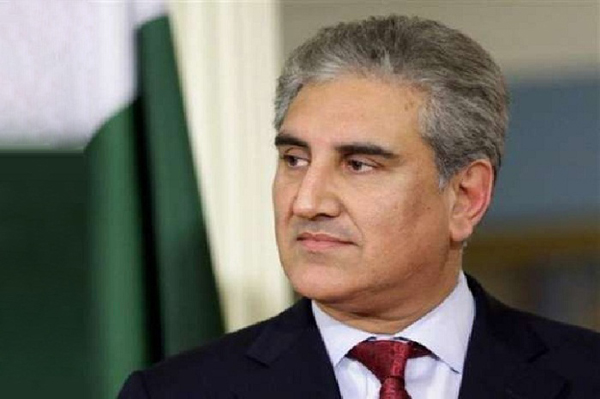مضمون کا ماخذ : بہت کچھ
ILO to begin compensation process to Baldia fire victims families
KARACHI: Pakistan Institute of Labour Education and Research (PILER) and German company KiK Textilien on Thursday officially acknowledged the fulfillment of compensation for families of the Baldia Factory fire incident. KIK Textilien and Non-Food GmbH Chief Executive Officer Patrick Zahn and PILER Executive Director Karamat Ali signed a document, acknowledging the fulfillment of their initial […]
KARACHI: Pakistan Institute of Labour Education and Research (PILER) and German company KiK Textilien on Thursday officially acknowledged the fulfillment of compensation for families of the Baldia Factory fire incident.
KIK Textilien and Non-Food GmbH Chief Executive Officer Patrick Zahn and PILER Executive Director Karamat Ali signed a document, acknowledging the fulfillment of their initial agreement, on behalf of their respective organisations at a ceremony in the city.
German Consul General in Karachi, Rainer Schmiedchen, International Labour Organisation (ILO) Country Director Ms Ingrid Christensen, German-Pakistan Chamber of Commerce and Industry President Qazi Sajid Ali and Employers Federation of Pakistan President Majyd Aziz were present on the occasion. Sindh Labour Solidarity Committee Convener Habibuddin Junaidi and National Commission for Human Rights member Anis Haroon also attended the ceremony.
KIK Textilien had been the main buyer of Pakistani garments manufacturing company, Ali Enterprises, who operated the factory in Baldia Town. Over 255 workers lost their lives and 55 others were injured in the worst-ever factory fire incident on September 11, 2012. The German company, accepting responsibility as a buyer, had contacted PILER to provide compensation to the victims.
KiK Textilien, as immediate relief to the victims, had paid $1 million, which had been distributed by a judicial commission led by Justice (retd) Rahmat Hussain Jafery. Under the agreement with PILER, signed in December 2012, besides providing immediate relief, KiK was obliged to pay for long-term compensation for the victims’; families. For this purpose it had signed another agreement with the ILO in 2016 to provide $5.15 million.
Speaking at a press briefing before the occasion, ILO Country Director Ingrid Christensen confirmed that her organisation had received the amount in question from KiK at the end of December and a mechanism to disburse the amount was being chalked out.
She said the ILO was working on implementation modality, oversight mechanism and establishment of a trust (fund) in this regard. She hoped that within three months they would be able to start disbursing the funds.
Christensen pointed out that both countries’ governments had approached the ILO to facilitate provision of compensation to the victims. Based on the principles of ILO Convention 121 (employment injury benefits) the ILO facilitated a deal between KiK, IndustriAll and the Clean Clothes Campaign under which KiK would provide the additional compensation to the victims’; families.
KiK CEO Zahn proclaimed that his company had fulfilled its commitments. “No amount of money will bring back beloved family members or can make this incident undone. But, money can help to better deal with the consequences of the accident,” he said. He added that his company would continue its procurement business in Pakistan while also vowing to launch a building safety plan.
Currently 30 factories, 20 in Karachi, are supplying their products to KiK. “We want to encourage our suppliers to take the safety of their factory buildings seriously. We want to help them in their efforts and have thus offered all our suppliers an initial evaluation of their status quo with regard to building safety, electrical safety and fire protection,” Zahn informed.
However, he made it clear that the responsibility for the safety of the factory remains with the owner, not with KiK.
German Counsel General Rainer Schmiedchen said that he had observed that after the Baldia fire incident, a lot had changed in Karachi’;s textile industry. He gave examples of two textile factories in the city, which he had recently visited, with one factory having a previous head of Karachi’;s fire department on its payroll.
“In the factory I saw two trucks standing by, equipped with all what is needed to fight fires and incidents. The company even employs 2 doctors for the workers and their families to provide medical assistance. So I think that employers have learned from the factory fire,” he added.
PILER Executive Director Karamat Ali appreciated KiK’s compensation provision efforts. He also expressed thanks to the ILO for its role in the finalisation of the long-term compensation deal. Ali said that after the incident KiK had approached PILER by itself and offered to compensate the victims. As a result of long deliberations, a memorandum of understanding (MoU) was signed between PILER and KiK, under which the latter promised to provide both immediate relief, while also making a commitment to contribute to long term compensation as well as to the safety of the factories. Within a week of singing the agreement, KiK had transferred $1 million to PILER’;s account. PILER had subsequently requested the Sindh High Court to disburse the amount among the legal heirs. It took eight months to ascertain the legal heirs after which the amount was disbursed through SHC Commission.
Majyd Aziz said that employers were closely working with labour leaders to ensure industrial peace and increase industrial production.












